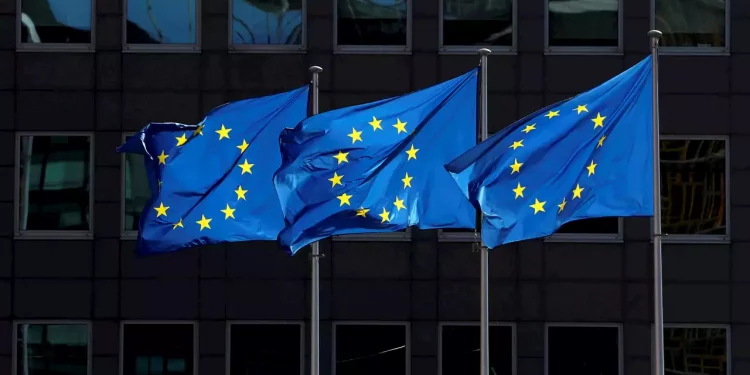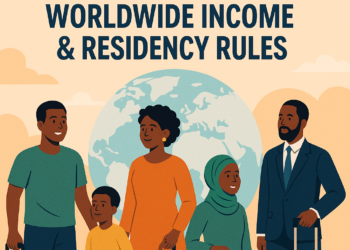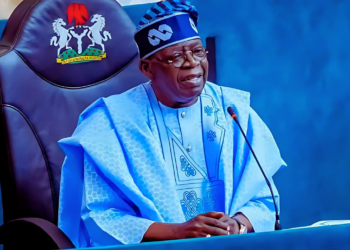Ahead of the 2023 general elections, the European Union, EU, has sounded a note of warning to politicians against interfering in the activities of the Independent National Electoral Commission, INEC, saying that the electoral body must be allowed to operate free from outside pressure.
BASIC FACTS
- EU wants INEC to be free from interference in conducting the 2023 general elections
- EU has contributed €150m in improving Nigeria elections since 1999 and set to spend another €39M on EU-SDGN.
- INEC have said it welcomes partnership from observers and international agencies.
WHAT WE KNOW
The European Union, EU has warned against interfering in the work of the Independent National Electoral Commission ahead of the 2023 General elections. The EU warning is particularly targeted at politicians who might want to manipulate the electoral body, thereby tempering with it’s independence.
The EU also warned politicians to guide against hate speech and any form of behaviour that may have negative effects on the outcome of the 2023 poll.
Head of the EU delegation to Nigeria and the Economic Community of West African States (ECOWAS), Ambassador Samuela Isopi, gave the advice at the official closure of the Phase I and launch of Phase II of the EU Support to Democratic Governance in Nigeria (EU-SDGN) on Monday in Abuja.
The EU-SDGN programme was launched to contribute to the reinforcement of democracy in Nigeria by supporting the government and key stakeholders, including the Electoral Management Bodies (EMBs), national assembly, political parties, judiciary, media, Civil Society Organisations and security agencies.
The EU head who spoke at the event, stated that the 2023 elections is pivotal moment in history of the country. Isopi maintained that Nigeria has the responsibility to lead and inspire other democracies on the continent.
She observed that though who wins the elections in 2023 is for the Nigerian people to decide, Isopi observed that the EU would continue to share Nigeria’s interest to see a solid process leading to peaceful, free, fair and credible elections.
According to her, the organisation has contributed about €150 million in improving Nigeria’s electoral system since the nation’s return to democratic rule in 1999, adding that about €39 million will be spent on the second phase of the EU-SDGN programme
Speaking on presidential campaign slated to commence on September 28, Isopi called for a peaceful and issues-based campaigns while encouraging all stakeholders to take a firm stance against violence and hate speech.
According to the EU, the peace accords facilitated by the National Peace Committee in 2019 played an important role, adding that the EU would welcome new efforts and commitments towards that goal.
INEC chairman, Prof. Mahmood Yakubu, speaking at the event, insisted that the core costs of Nigeria’s electoral activities, including the acquisition of sensitive and non-sensitive materials for all elections, remain the sovereign responsibility of Federal Government of Nigeria.
He however, applauded the support of international development partners to enhance training and capacity building of officials and stakeholder engagement for peaceful election.
According to him, the commission welcomed the deployment of international and domestic election observers in line with INEC guidelines, adding that INEC considers the deployment of such election observation missions as a means of enhancing public confidence and trust in Nigeria’s elections.
NOTABLE QUOTE
Isopi said, “As the largest democracy in Africa, elections in Nigeria matter. They matter to Nigeria and Nigerians, they also matter for Africa as their outcome will be watched and felt well beyond its borders. Nigeria has the responsibility to lead and inspire other democracies on the continent six months ahead of the 2023 General Election, Nigeria is at a pivotal moment in the process.
“Who wins the elections is for the Nigerian people to decide. As a longstanding partner, the EU shares Nigeria’s interest to see a solid process leading to peaceful, free, fair and credible elections.
“We would like all Nigerian voters to peacefully and freely cast their vote to choose their leaders and contribute to strengthening their country’s democracy and good governance.
We are particularly keen to see greater participation of youth, women and people with disabilities.
“The mobilisation we have been witnessing across the country, especially among the youth to register in view of next elections is a strong sign. it is a message from the Nigerians, from the youth in particular, that they believe in democracy.
“It is also a sign of trust in the electoral process that has made tremendous progress over the past few years and months, thanks to the reforms and the technical innovations introduced by INEC to make elections more transparent and more credible, and to reassure voters that their vote count and will be respected”
“We must all support and respect the fundamental and INEC as it fulfils its constitutional mandate. INEC must be allowed to operate free from outside pressure, and in turn must demonstrate full neutrality and professionalism.
“Tremendous progress has been achieved. The new electoral act is a major step forward and its full implementation together with the technical reforms introduced by INEC have the potential to make 2023 general elections a milestone in Nigeria’s democratic history.
“For this to happen, everyone has to do its part. INEC, but also political actors, civil society groups, media, security agencies — that will need to act with neutrality and professionalism to provide a safe and secure environment -, citizens and voters. And also partners, in providing critical technical assistance and support.
“We hope that everybody will make the right choices for Nigeria. The European Union is ready to do its part. Nigerian authorities have already invited the European Union to deploy an Election Observation Mission, as we have consistently and regularly done since 1999. Preparations are underway to be able also this time to positively respond to this invitation.”
Prof. Mahmoud Yakubu, speaking at the event, said, “Their recommendations have been especially useful in reviewing our processes and the introduction of some of the progressive reforms in our electoral legal framework in line with global good practices. To this end, the Commission has already sent out letters to such international organisations such as the United Nations, European Union, Commonwealth, the African Union and ECOWAS inviting them to deploy observation missions for the 2023 General Election. Very soon, advertisement will be placed in national newspapers and the Commission’s website to invite applications from interested domestic organisations to observe the same election”
CATCH-UP
The EU have been involved in building democracy in Nigeria, especially by supporting and promoting credible election since 1999.
The EU implemented a Phase I of the EU-SDGN programme from 2017 to 2022. The phase 1 coincided with the 2015-2019 and 2019-2023 electoral cycles, while the Phase II, will cover from 2022 to 2027, will cover the 2023-2027 electoral cycle.
The EU from her record, said she has contributed about €150 million in improving Nigeria’s electoral system since 1999.
COMMENTARY
Indeed the international community has in no small way contributed to the electoral process.
The EU have been particularly helpful in capacity building and election monitoring. The EU does not just monitor elections in Nigeria, but also build the capacity of local CSOs to monitor elections.
It’s to the credit of the global community that some Nigerian politicians refrain from inciting violence for fear of visa ban.
However, to further entrench credible election in Nigeria, the EU and the global community should perhaps consider the role of security agencies in credible elections.
Security agencies can be trained on how to arrest those behind the menace of voting buying during elections both at party level and general election. As credible election may just be the panacea to bad governance in Nigeria.
Most importantly international organizations and foreign countries should up their game in helping Nigerian withstanding their oppressors by taking stronger stand against election riggers.
EU can be more forceful on those responsible for manipulating elections and enthroning bad governance in Nigeria by ensuring they do not free visit or invest or even come for medical tourism in their own countries.












